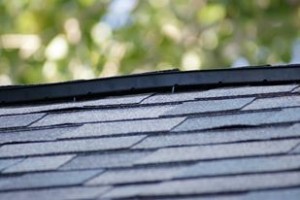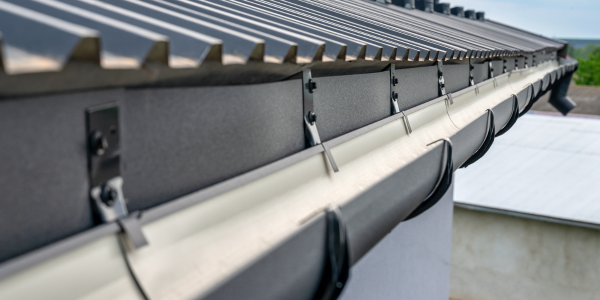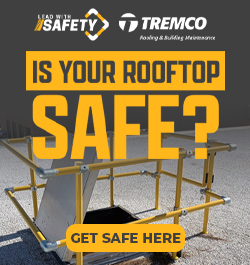What Roof Should I Put on my Beach House?

By Lauren White.
This homeowner’s guide outlines which roofing materials can better withstand extreme coastal weather conditions.
There’s a definite appeal to living in or owning a beach house – you’re right on the water, have amazing views and it’s relaxing. However, your home, more specifically your roof, are more prone to humidity, wind and extreme heat depending on the region you’re in. And for those in hurricane zones, your roof needs to be resilient enough to stand up to Mother Nature. So, what is the most durable roofing material for your beach house?
Best type of roof for coastal home
As the first line of defense against adverse weather, roofs need to be able to withstand a multitude of extreme conditions. There are a variety of roofing materials, but some are more suitable to protect your home and family from the elements than others.
1 - Metal
Since metal is hail, fire and wind resistant, it is an ideal choice for coastal and other areas prone to severe weather. It comes in a variety of colors, shapes and textures, helping you achieve the exact look you want for your home. Additional benefits of metal include:
-
Reflects sunlight naturally, improving your homes’ energy-efficiency
-
Class A fire rating, the highest level of fire protection
-
Withstands hurricane-force winds up to 140 mph
-
Has higher uplift value than other roofing materials
-
Lasts 50-70 years
-
100 percent recyclable
The durability and impressive performance history of metal roofs in the face of hurricanes makes metal one of the best roofing materials for areas prone to high winds.
2 - Concrete tile
Concrete tile is a popular option because it can mimic the appearance of other materials like cedar shake, slate or clay, and is often cheaper. Concrete tiles are resistant to fire, insects and pests, moss and rot, and wind speeds up to 125 mph.
For homes in sunnier and warmer climates, concrete is an ideal roofing choice because it reflects sunlight, making your home more energy efficient. Guidelines from the U.S. Department of Energy suggest that people living in sunnier locations utilize cool roof technology.
Concrete roofs can last up to 50 years, but depending on the type of tile chosen, the color can fade over time. Hail, falling branches and debris can crack the tiles, which would then need to be replaced.
3 - Slate
Slate is a beautiful, natural stone material that can come in many different colors. This extremely durable material is fire-resistant, won’t be damaged by humidity and can last more than 100 years. Additionally, slate can resist rainy conditions and extreme weather conditions.
Slate is not a common material to see on roofs. While it is durable, it is expensive and sometimes difficult to source. Because slate isn’t widely used, it can be challenging to find a contractor who is experienced in installing the material. Slate is also extremely heavy, and it’s possible your home isn’t built to endure the weight of this type of roof.
4 - Clay tile
Clay tile is an attractive roofing material due to its aesthetics and durability. It is resistant to fire and won’t deteriorate due to salt water. Tile roofs can hold up well to winds of over 100 mph, which is ideal for homes that are subject to hurricane-force winds. The material is also too dense for destructive insects to cause significant damage. This type of roof doesn’t absorb a lot of heat, benefiting those in warmer climates since it will keep the inside of the home cooler. When properly installed and maintained, a clay tile roof can last from 50-100 years.
There are a couple drawbacks to tile roofs. One disadvantage is that clay is a heavy material, which can be problematic for some buildings and might require additional roof reinforcements. Any minor cracks that occur in the tile due to natural wear or damage from storms or debris can cause issues with the underlayment.
What about wood shingles and shakes?
Wood shingles and shakes are commonly used on beach houses for both roofing and siding on the West Coast and Northeastern U.S., but are not an ideal option for homes in areas where high heat, humidity and sunlight are abundant since wood is susceptible to rotting and insect damage, and doesn’t hold up well in such conditions. It is an extremely combustible material, making cedar shake roofs a fire hazard during storms. While wood shingles and shakes can withstand winds up to 140 mph, it would be unwise to select this material for a beach house in areas where hurricanes are prevalent.
Choosing the right material
There are pros and cons to each roofing material, so how do you choose the best roof for your coastal home? While appearance is important, avoid making your decision based solely on the look of the material. Instead, ask yourself the following when considering if metal, concrete, slate or clay is the best roofing material for your coastal home:
-
Does it meet my state building standards?
-
Is it energy efficient?
-
How durable is it?
-
Is it fireproof?
-
Will it withstand hurricane-force winds?
-
How long will it last?
Have a question? AskARoofer.
Find your local roofing contractor in the RoofersCoffeeShop® Contractor Directory.
About Lauren
Lauren is the editor for RoofersCoffeeShop, MetalCoffeeShop ™ and AskARoofer™. When she’s not writing or Googling roofing terminology, she's adventuring with her puppy Kira and trying new recipes. Learn more about her here.













Comments
Leave a Reply
Have an account? Login to leave a comment!
Sign In